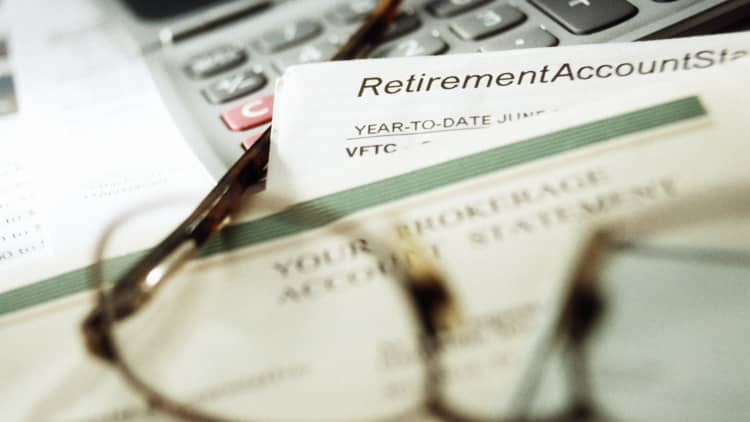


How to spend down your money may be the missing link in your retirement plan.
Nearly two-thirds of savers approaching retirement don't have a strategy for which assets to tap first, according to a report from Ameriprise, which surveyed 1,300 baby boomers age 55 to 75. Among those already retired, one-third don't have a draw-down strategy.
"What's sort of beaten into our heads is, save, save, save," said Andrea Blackwelder, a certified financial planner with Wisdom Wealth Strategies in Denver. "It really doesn't occur to most people, until they get a few months out from retirement, to go, 'How do I take what I've saved and turn it into income?'"
Failing to plan can be an expensive mistake. The wrong spending moves could result in an unnecessarily large tax bill, for example, or deplete your retirement savings more quickly.
Advisors say there's no one-size-fits-all strategy for what assets to tap, in what order and proportion, and how much in total to withdraw in a given year. That depends on factors such as your asset mix and balances, income needs and age. Your expected timing for claiming Social Security might also affect which draw-down plans.
(See chart below for retirees' and pre-retirees' expectations of how much of their income will come from various sources.)
Expected retirement income, by source
| Click to edit | Pre-retirees | Retirees |
|---|---|---|
| Social Security | 25% | 23% |
| Pension | 16% | 31% |
| 401(k) | 21% | 12% |
| IRA | 13% | 12% |
| Savings/market investments | 12% | 12% |
| Annuity payments | 4% | 5% |
| Other sources | 9% | 5% |
Source: SOURCE: Ameriprise Pay Yourself in Retirement.
To craft a plan, think long term. "One of the cornerstones of good tax planning is to think about things over more than one tax year," said certified financial planner Dan Moisand, principal at Moisand Fitzgerald Tamayo in Melbourne, Florida.
For example, tapping taxable brokerage accounts first is often a smart move, because long-term capital gains are cheap tax-wise, at 0 to 20 percent, Blackwelder said. But if you have substantial savings in a retirement account, starting withdrawals before required minimum distributions kick in can help reduce the amount you must withdraw in later years, reducing those tax obligations, said Moisand.
"There's that golden era between 59 1/2 and 70 1/2, where you have the most control over your taxes," he said. You won't be hit with any early withdrawal penalties, but don't yet have to take RMDs. That can be the ideal time for big moves, like a Roth conversion, if you hadn't already done one, he said. You'll pay the tax on the conversion in a low-income year in exchange for tax-free distributions later.
Ideally, start thinking about the spending side well ahead of retirement by making sure you have a good mix of accounts with different tax implications, said Marcy Keckler, vice president of financial advice strategy for Ameriprise. Think retirement accounts where distributions are taxable, and Roth options where they aren't, as well as non-retirement options, such as brokerage accounts and health savings accounts.
"The sooner you start, the more flexibility you can give yourself," she said.








